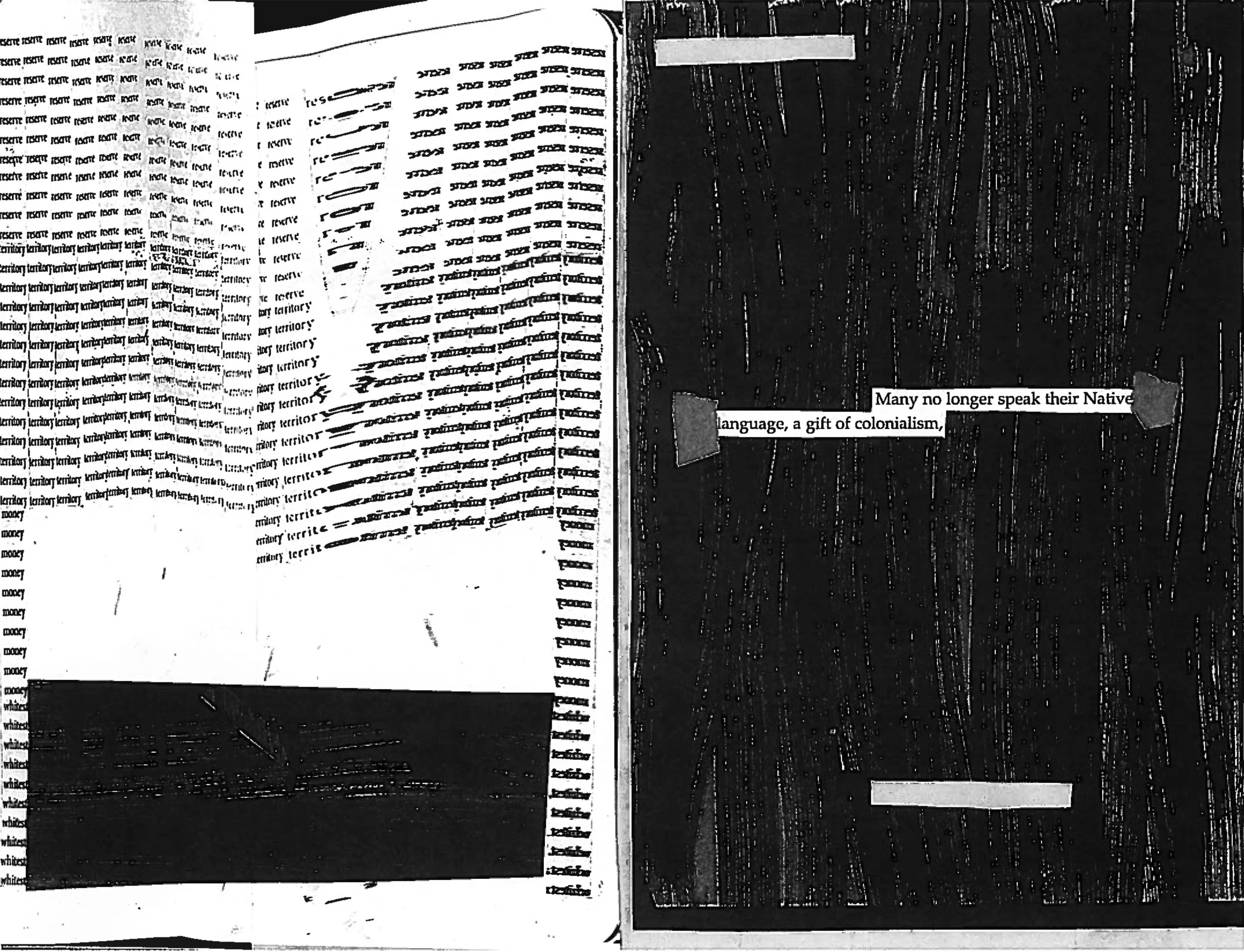October 11 - December 14, 2019
Calgary Central Public Library, Calgary, AB.
Cheyenne Bearspaw, Alyssa Duck Chief, Danielle Piper, and AJ Starlight with the Gumisistiy You Art Program
Curatorial project for the inaugural Emerging Curatorial Residency at TRUCK Contemporary Art.
What does it mean when your mother tongue [1] is not the language of your mothers and grandmothers? What does it mean to speak in a language that is not your own, that is not the language that has been passed down and flows through you, sustaining you?
Embedded within languages are entire worlds. Language reveals how we know what we know and teaches us how to relate to one another and with the land. Being raised with a foster language, a language forced by colonizers, affects all aspects of a life and the lives of those that come after. We take root and are nourished within and by our language as it moves through our bodies and guides us. But what happens when the words that guide you are not the same words that guided your ancestors, but are words instead tainted by imperialism and colonialism?
The situation is dire for Indigenous languages here in so-called Canada, with only three of the approximately sixty Indigenous languages predicted to survive the next 100 years—Nêhiyawêwin, Ojibwemowin, and Inuktitut [2]. However, that does not mean that Indigenous peoples across these lands are giving up on their ancestral languages. Great strides are being made towards language acquisition and dissemination, with more people every year entering into immersion programs and convening with family to learn their mother tongues.
Mamanaw Pekiskwewina | Mother Tongues brings together emerging artists from four Indigenous language groups of the Treaty 7 region, who incorporate Nakoda, Nēhiyawēwin, Nitsiipowahsiin, and Tsuut’ina into their artistic practices. Mamanaw Pekiskwewina | Mother Tongues gives space back to the First Nations communities of this area, while asserting that the Indigenous lands that we occupy carry specific language traditions that root us to this land and still flow through us.
Notes
[1] The most common usage of the terms ‘mother tongue’ and ‘first language’ refer to the language that a person first learns during childhood and still speaks at home. However, many Indigenous groups around the world use the term ‘mother tongue’ to refer to the language of their mothers and/or ancestral language. This text observes the latter usage in reference to the phrase ‘mother tongue’.
[2] Gessner, Suzanne and Lorna Wanosts’a7 Williams. Indigenous Languages Recognition, Preservation and Revitalization: A Report on the National Dialogue Session on Indigenous Languages: Abridged Version. Brentwood Bay, BC: First People’s Cultural Council, 2017.
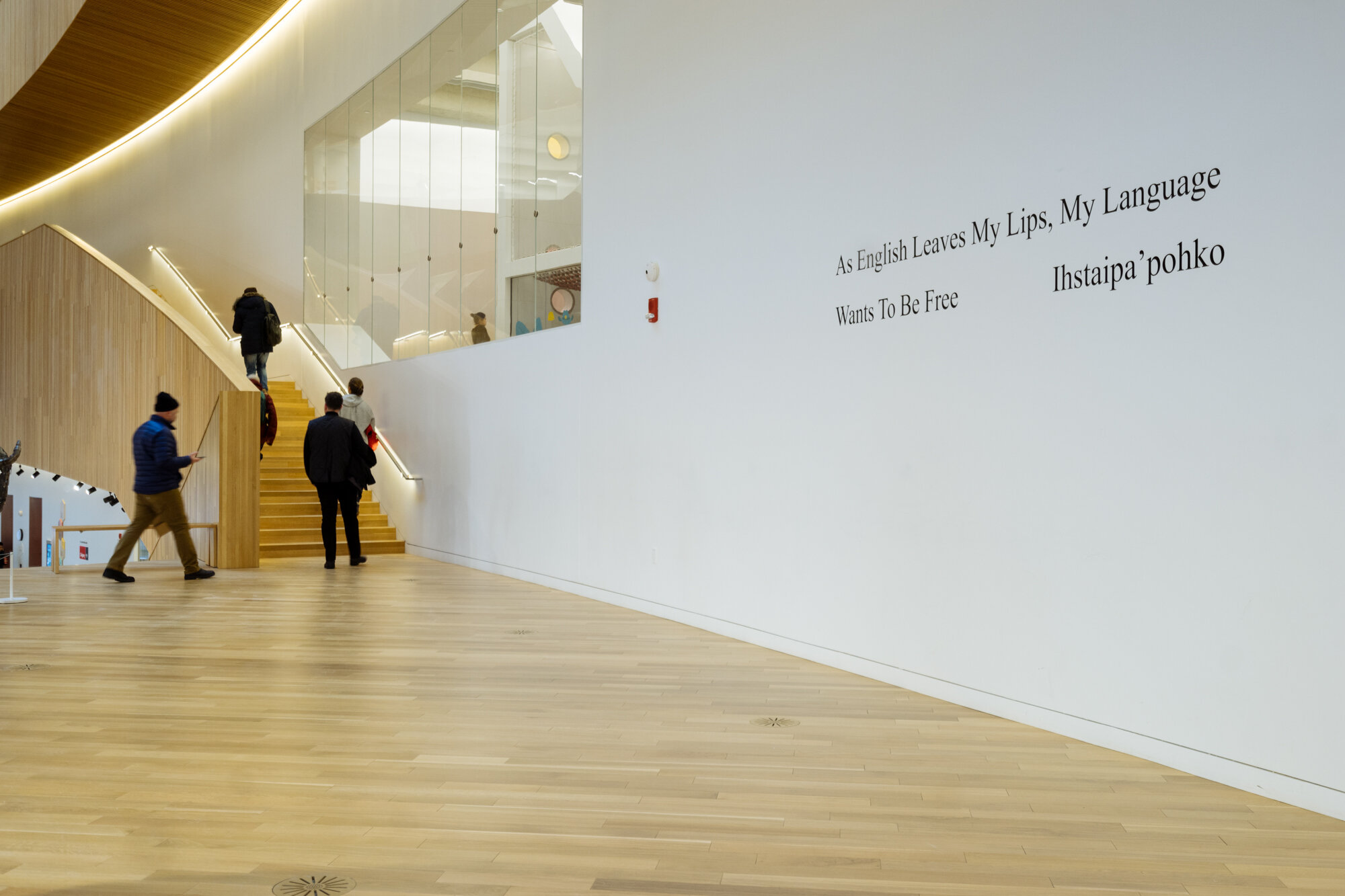
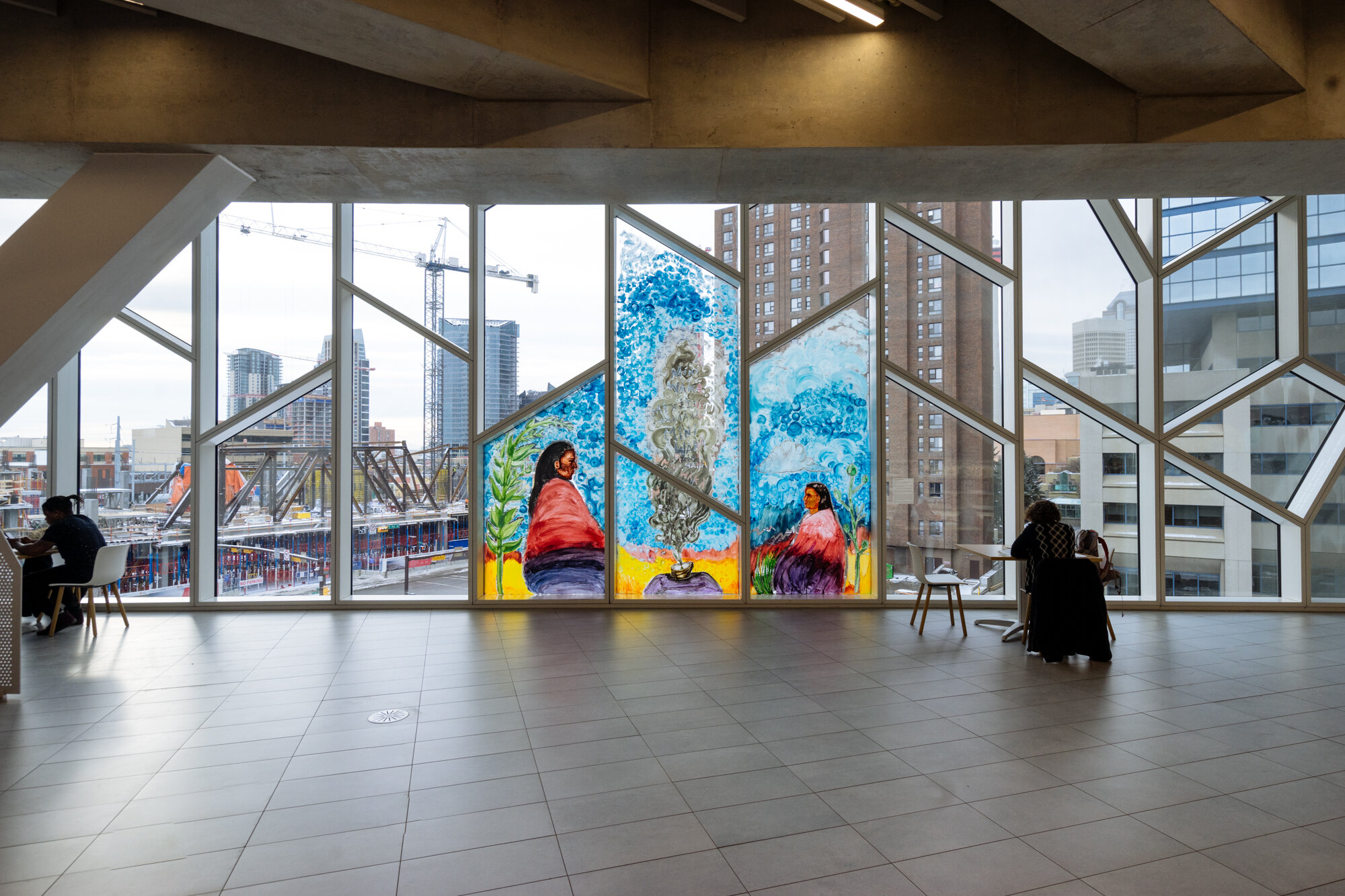
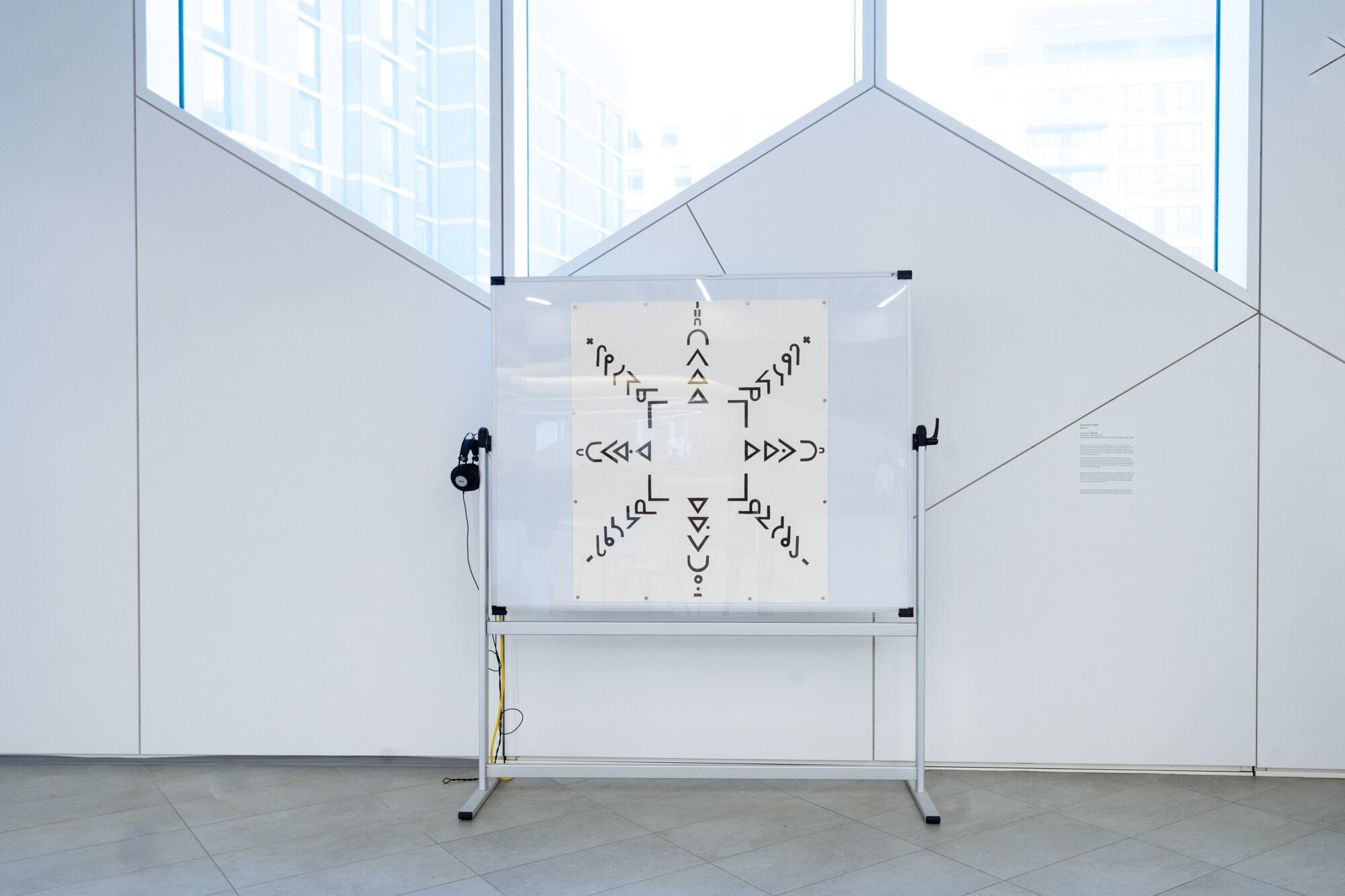
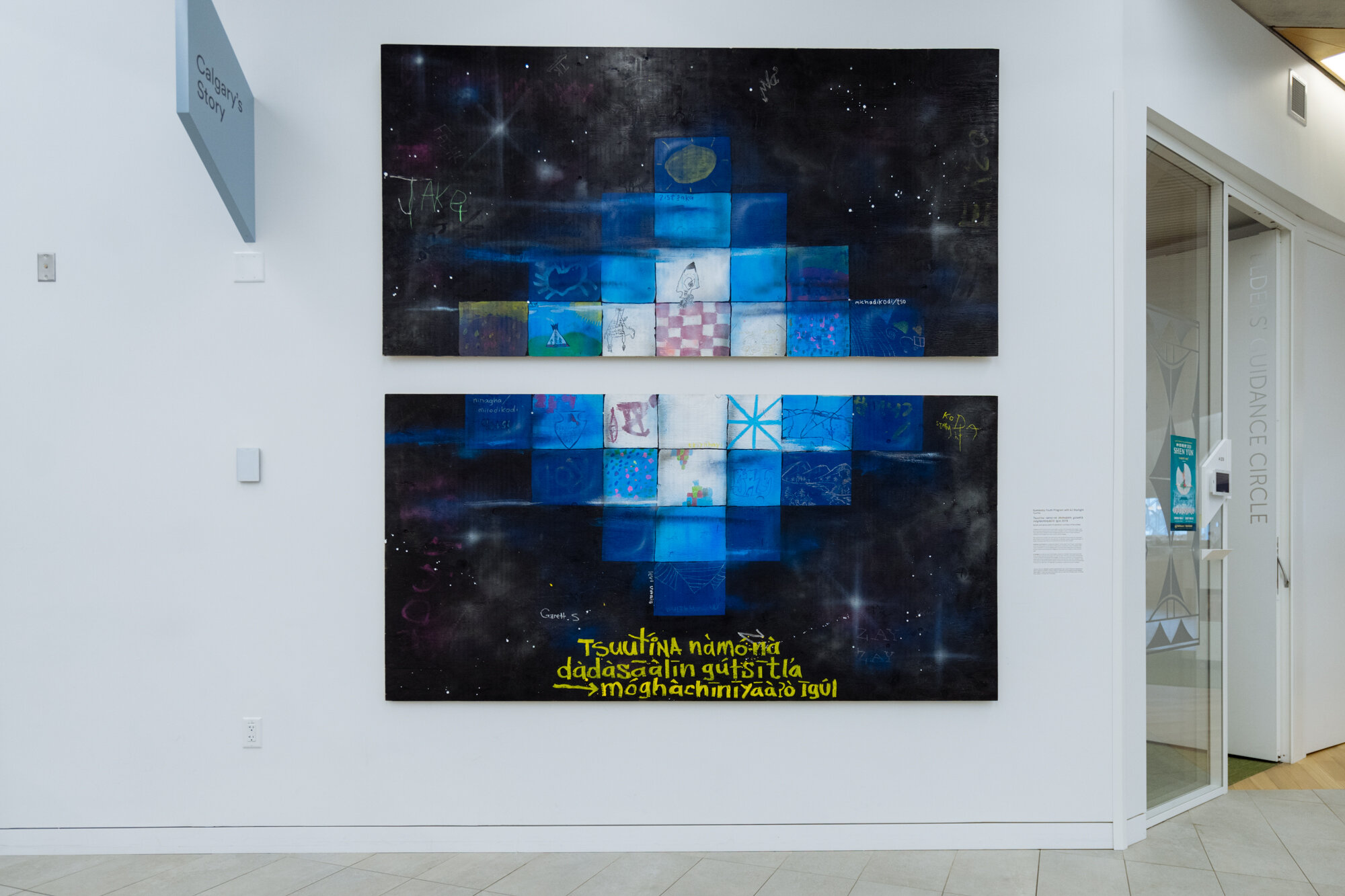
Banner Image: Alyssa Duck Chief, zine excerpt, 2018. Image courtesy of the artist.
